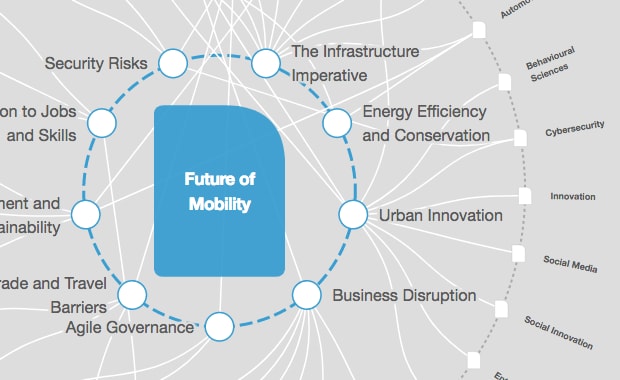How shared cars, scooters and other mobility solutions are fighting coronavirus

Image: REUTERS/Prashant Waydande - RC29QF9NTAXU
- The ramp-up in recent years in new mobility services has helped ease the strain on the movement of goods and people working on the front lines of COVID-19 containment.
- Capturing real-time mobility data and sharing COVID-19 rapid alerts can help prevent the spread of the virus and save lives.
While it is too soon to determine what worked and what didn’t in mobilising the response to COVID-19, we can already take stock of various efforts that new mobility providers are pursuing to combat the spread of the virus. Many of the current efforts are focused on ramping up efficiency, ensuring safety and making the most out of the existing system. Each of these tactics can boost efficiency and effectiveness in our mobility system even after the crisis has passed.
Mobilising first responders to save lives
Mobility service providers (MSPs), such as ride hailing and micro-mobility companies, have been quick to broaden commute options available to first responders. Scooters in China and fleets of for-hire and for-share cars have become the best available commute options of healthcare staff in wake of cities’ shut-downs. We’ve later seen micro-mobility options placed at the heart of the European virus uptake in response to officials’ call for support. With the abrupt changes to supply and demand, new mobility services have proven just how agile and essential they can be in addressing the rapid changing emergency.

Reducing mobility costs to ensure affordability for all
With transportation system-wide closures become more and more pervasive, MSP’s are becoming the most reliable source of mobility for people and goods. MSPs have risen to the challenge not only increasing food delivery services, but reducing costs and creating invaluable partnerships with community organizations serving the most vulnerable. Public-private partnerships are instrumental to keep the fleet of mobility services running as effectively as possible.
Exchanging critical information to curb infection rates
Signs of a coronavirus infection could take two weeks to manifest. Luckily, drivers and riders of trips who have been exposed to infected individuals are already being notified by some MSPs and partnering authorities in order to curb infection rates. They are doing so without exposing sensitive data and with full adherence to existing data regulations. Critical information sharing between public and private authorities to enhance public safety can be realised without compromising on privacy and competitiveness.
Introducing technology and policies to protect commuters and drivers
Didi was the first to introduce in-cabin separation requirement to protect its drivers, without depriving those in need of urgent rides. More policies to ensure hygiene and safety of drivers and riders have soon followed by MSPs globally, and the services remained operable as long as deemed possible by health authorities governing and monitoring the outbreak.
It seems as if it were just yesterday that everyone from government leaders to entrepreneurs debated the pros and cons of new mobility service providers. Still, if we’ve learned anything from the COVID-19 pandemic it's just how essential these dynamic and agile MSPs can truly be.
Clearly, it takes a village (and a crisis), to bring together a symphony of solutions and multi-stakeholder collaborations that slowly but surely eliminates risks and improves our lives. No single actor can achieve this alone, but groups collaborating on a transition can help ensure a sustainable and resilient mobility future.
Don't miss any update on this topic
Create a free account and access your personalized content collection with our latest publications and analyses.
License and Republishing
World Economic Forum articles may be republished in accordance with the Creative Commons Attribution-NonCommercial-NoDerivatives 4.0 International Public License, and in accordance with our Terms of Use.
The views expressed in this article are those of the author alone and not the World Economic Forum.
Stay up to date:
Mobility
Forum Stories newsletter
Bringing you weekly curated insights and analysis on the global issues that matter.
More on Health and Healthcare SystemsSee all
Mansoor Al Mansoori and Noura Al Ghaithi
November 14, 2025







